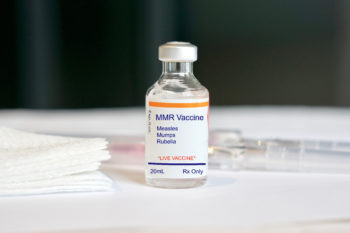With local temperatures expected to reach the low-to-mid 90s in San Diego’s coastal and valley areas today and the mid-to-high 90s, or even triple digits, on Wednesday and Thursday, County health officials are reminding the public to take precautions to avoid heat-related illnesses.
“Serious health problems can result from exposure to high temperatures, even if exposed for short periods,” said Wilma Wooten, M.D., M.P.H., County public health officer. “Working or doing any type of physical activity outside on a hot day, spending too much time in the sun, or staying too long in an overheated place can lead to heat-related illnesses, including heat stroke, exhaustion, and cramps.”
To avoid heat-related problems, health officials recommend the following:
- Stay in an air-conditioned area during the hottest hours of the day
- Wear light, loose-fitting clothing
- Drink plenty of water (avoid alcohol and sugary drinks) and don’t wait until you are thirsty
- Take cool showers
- Never leave a child, elderly person, or pet unattended in a car
- Avoid unnecessary hard work or activities outside during the hottest part of the day
- Avoid unnecessary sun exposure and wear a wide-brim hat if you need to be in the sun
- Avoid using the oven to cook
An extremely high body temperature (103 or higher), dizziness, nausea, confusion, and headache are signs of heat stroke or exhaustion.
If someone shows these signs, call 9-1-1 immediately and begin cooling the individual by:
- Moving them to a shaded area
- Spraying with cool water and fanning them
- Placing them in a cool shower if they are alert
- Monitoring the body temperature, and continue cooling efforts
- Do not give the victim fluids to drink
“Heat-related illness occurs when a person’s body temperature control system is overloaded,” Wooten added. “When this happens, the body’s temperature rises rapidly, the sweating mechanism fails and the body is unable to cool down.”
RELATED:
Children and Hot Cars: A Deadly Combination
Waterfront Park Fountain Jets to Flow Tuesday
Elderly people (65 years and older), infants and children, and people with chronic medical conditions are more susceptible to heat stress. If you have elderly neighbors or relatives, check on their well-being.
People with no air conditioning in their homes can go to a public place such as a shopping mall, library or senior center (Cool Zones) to stay cool. Even a few hours spent in air conditioning can help your body stay cooler. Do not rely on electric fans for cooling if temperatures exceed 90 degrees.
Extreme heat incidents are also a reminder to reduce energy, while at the same time trying to stay cool. This is a perfect opportunity to also review and update your home emergency kits for use in the event of rolling black outs.
The County operates the Cool Zones program and has designated more than 100 air-conditioned buildings as cooling centers. The sites are identified by a light blue Polar Bear Cool Zone logo. For more information, call (800) 510-2020 or click here for a list of locations.






